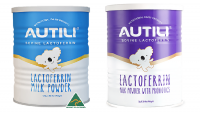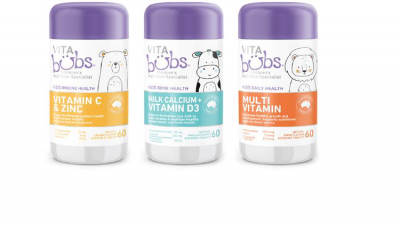Not for babies: Stricter control over general milk formula marketing needed in China market

Jane Li, the co-founder of New Zealand Milk Bar providing consulting services to companies entering China’s dairy market, pointed out that milk formula not intended for infant consumption were often packaged and marketed as such into China.
Such products are usually termed formulated milk powder with added lactoferrin or other nutrients such as probiotics and colostrum.
With cartoon designs on the product tin, these general milk formula are often marketed to Chinese parents as infant milk supplements.
The majority of manufacturers making such products are from Australia, New Zealand, with the remaining ones from the US, Canada, and China itself, which has now become an “industry wide” phenomenon, Li told NutraIngredients-Asia.
These products are made available in China via cross-border e-commerce such as Tmall and JD.com.
One example is Homart Pharmaceuticals which has a range of lactoferrin and lactoferrin probiotic milk powder under the brand 'Autili'.
On its website, these products are categorised as supplements but there is no details on the suitable age for consumption stated prominently on the tin packaging or on its official English website Homart Dairy. It did, however, stated on its Tmall flagship store that its lactoferrin milk powder and lactoferrin with milk powder are suitable for children who are three years old.
NutraIngredients-Asia has reached out to the company for comments but has not received any response as of the time of publication.
Tidy up the industry
At the heart of the problem was regulatory loopholes, said Li.
Technically speaking, she noted that the manufacturers have not violated the law. This is because they have passed general food safety testing and were thus given the export license.
According to her, the problem arose as there is no further scrutiny on the products, such as corroborating the product packaging with the ingredient list, the direction for use, and examining the targeted consumer groups.
“A responsible regulator, when you get these products to issue the license, you should ask the companies who they are making the products for.
“Because these products look like they are targeting the infants and children and you wouldn’t be able to tell that it is for the adults,” she said, emphasising that such products were unsafe for infants, since they were not made according to infant foods standards.
She urged the authorities to cooperate to resolve the issue, such as ensuring that there are warning statements printed on the products to state that they were not for infants.
“I am hoping that the regulators in the exporting countries ANZ, Canada, US, together with the Chinese authorities can look into this matter and tidy up the industry,” she said.
Another way is to clarify the target consumer groups and make sure that they are made and tested against infant foods standards.
“There is nothing wrong with lactoferrin, many infant formulas contain it. The problem comes when the products are not made and tested according to infant formula standards, which is stricter than general foods.”
When asked for their comments on the issue, the Asia Pacific Infant and Young Child Nutrition Association (APIYCNA), said it was committed to advancing optimal infant and young child nutrition through scientific research and consumer communication.
“The APIYCNA is committed to advancing optimal infant and young child nutrition through scientific research and credible consumer communication to empower parents to make informed nutritional choices for their children,” an APIYCNA spokeswoman said.
The goldmine
Li noted that such products are mostly targeted at the China market, since there is a huge infant formula market in the country, and it also fits well with the consumer beliefs of ‘the more nutrients, the better it is.’
Manufacturers have thus exploited the current regulatory loophole to market their dairy formula for general consumption to whoever they want to, including infants.
She also noted that the phenomenon has been existing in China for quite a few years, but the COVID-19 pandemic was the turning point with a tremendous increase in uptake.
This is because such products make immune health claims.
Most of the manufacturers are smaller dairy brands which engage contract manufacturers to help them with the production.
However, giving such products to infants will do more harm than good.
“Infants are not supposed to drink anything else other than breastmilk and stage 1 formula, but you are giving them all these random probiotics and supplements which is obviously not safe,” Li said, citing WHO recommendations.
















